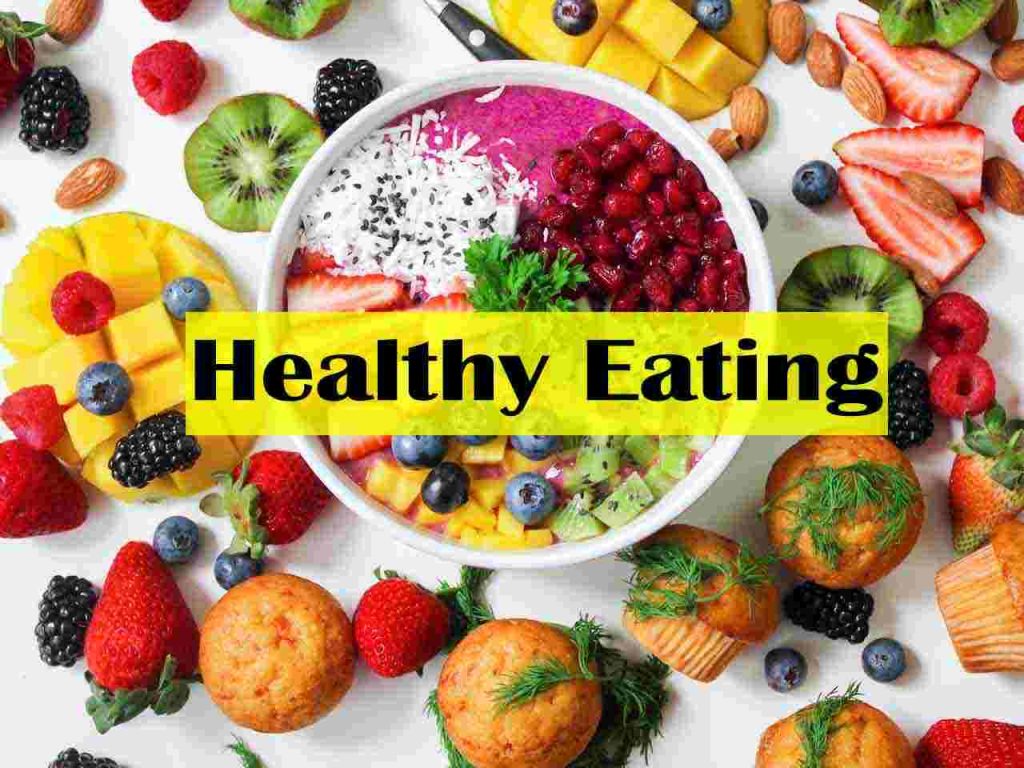The secret to a balanced diet is to ingest the proper number of calories for your activity level, balancing the energy you take in with the amount you expend. If you take in more food or liquid than your body needs, the surplus energy will be stored as fat, causing you to gain weight. If you eat and drink less than the desired amount, you will lose weight.
To maintain a balanced diet and make sure your body is receiving all the nutrients it requires, you should eat a variety of foods. Around 2,500 calories per day are recommended for men (10,500 kilojoules). Ladies need about 2,000 calories every day (8,400 kilojoules). The truth is that having a balanced diet doesn’t have to be tedious.
Eating the foods you love and still fueling your body is possible. This article cuts through the jargon to define healthy eating and show how to make it work for you..
Things to Know About Healthy Eating
While some extreme diets may imply differently, maintaining a healthy body requires a diet food plan that has a balance of protein, fat, carbohydrates, fiber, vitamins, and minerals. You should choose the healthiest items from each food category rather than excluding them from your diet.
Proteins
Protein supports mood and cognitive function while also giving you the energy to get up and go—and keep going. The most recent study indicates that many of us need extra high-quality protein. For this we recommend you the high protein jerky, made from leaner meats such as beef, turkey, or salmon, making it a great source of lean protein. It also contains a variety of minerals and vitamins, such as iron and B vitamins.
You will be better off buying a GrubHub food gift card to enjoy healthy and tasty meals from several top-notch restaurants.
This doesn’t mean you should eat more animal products; instead, you should try to get your daily requirement of protein from a variety of plant sources, so that your body has access to it.
Carbohydrates
Your body uses carbohydrates as one of its primary energy sources. Nonetheless, the majority of carbohydrates should come from complex, unrefined sources rather than sweets and refined carbohydrates (vegetables, whole grains, and fruit). You may prevent sudden blood sugar spikes, mood swings, energy dips, and the accumulation of fat, especially around your waist, by reducing your intake of white bread, pastries, carbs, and sugar.
Fats
Not all fat is created equal. While bad fats can destroy your diet and increase your risk of getting certain diseases, good fats shield your heart and brain from damage. In actuality, your body’s physical and mental wellness depends on healthy fats like omega-3. You may feel better, be healthier, and even lose weight if you increase the intake of healthy fats in your diet.
Fibers
Eating dietary fiber-rich foods including grains, fruits, vegetables, nuts, and beans can help you stay regular and lower your risk of developing diabetes, heart disease, and stroke. Also, it might improve the appearance of your skin and help you lose weight.
Calcium
Not having enough calcium in your diet can cause osteoporosis and anxiety, melancholy, and sleep problems. Including foods high in calcium in your diet, limiting foods that deplete calcium, and getting adequate magnesium and vitamins D and K will help calcium perform its job, regardless of age or gender.
Useful Dietary Habits
Cooking Own Meal
By preparing more meals at home, you can better control your consumption and keep track of all the ingredients. You’ll take in lesser calories and stay away from packages. Takeaway food’s chemical additives added sugar, and unhealthy fats can make you feel sluggish, bloated, and agitated and aggravate symptoms of melancholy, stress, and anxiety.
Right Adjustments
When you replace unhealthy foods in your diet with better ones, you must make sure to replace the unhealthy ones. If you replace unhealthy trans fats with healthy fats, such grilled salmon for fried chicken, your health will improve. Yet, replacing animal fats with refined carbs won’t improve your mood or lower your risk of heart disease.
Reading Labels
Knowing what’s in your food is critical because producers frequently conceal high sugar levels or bad fats in packaged foods, even those that make health claims.
Appropriate Water Intake
Despite the fact that water helps our bodies remove waste and toxins, many people suffer from chronic dehydration, which can cause weariness, low energy, and headaches. While confusing hunger with thirst is possible, drinking plenty of water will also help you choose healthier foods.
Final Thoughts
If you’re interested, you can start eating healthier by making a few little changes. A balanced diet often includes a variety of filling meals and snacks and is high in nutrient-dense foods and low in highly processed foods. Nonetheless, everyone’s definition of healthy eating could differ slightly.
We hope that this article will be useful for people just beginning their quest for a healthy diet and a refresher for those who are already familiar with the fundamentals of nutrition but wish to learn more.

1 Comment
Pingback: How to Choose the Best Premium Pullets for Your Dishes